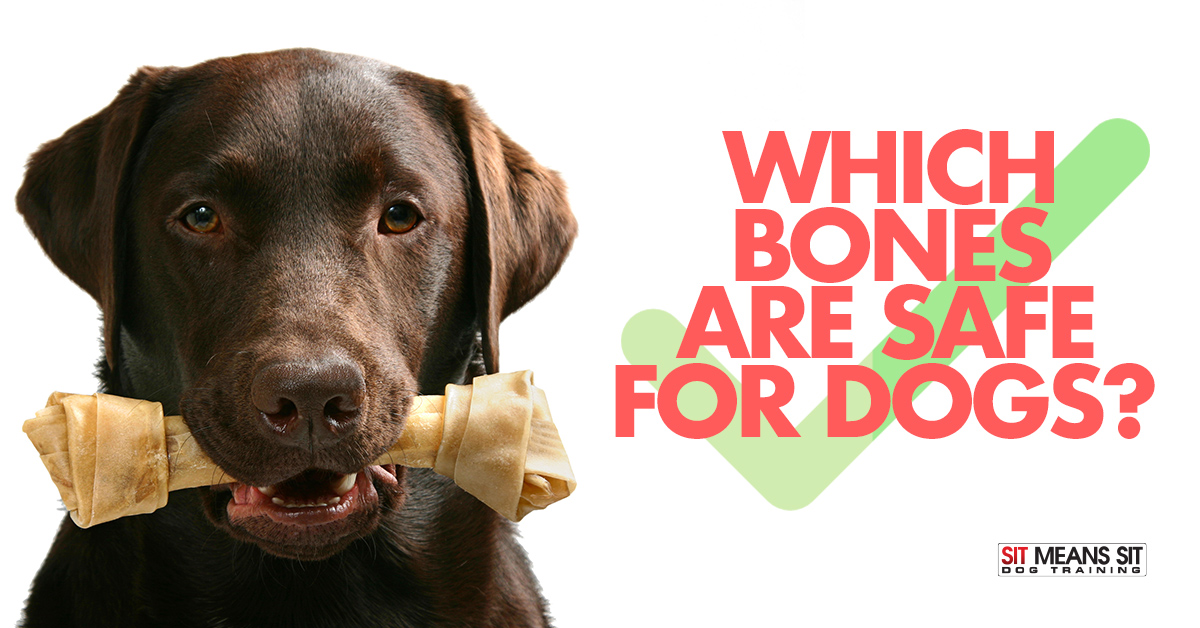
Which Bones Are Safe For Dogs?
Even people who don’t own dogs naturally associate them with bones and a love for chewing on them. But as a pet parent, you’ve probably heard here and there that not all bones are safe for our canine companions. To set the record straight, here are some of the bones that you shouldn’t be giving to your furry friend, as well as the ones that have received the stamp of approval.
Steer Clear of Cooked Bones
After a holiday or a big family meal, you might be tempted to give you dog the leftover scraps – including a bone from a cooked chicken, turkey, or ham. The problem is that these bones can easily break and splinter into Fido’s mouth, leading to a long list of possible issues. Some of those include:
- Broken teeth
- Cuts and gashes on their mouth and tongue
- Blockage to their windpipe, esophagus, or gastrointestinal tract
- Constipation
- Rectal bleeding
- Bacterial infections like peritonitis
Store-Bought Bones Can’t Always be Trusted
If you read the fine print, you’ll come to discover that the FDA warns that commercially bought bone treats can face similar dangers that cooked bones do as well as possibly cause serious illnesses.
When companies make these bone treats, they typically dry them through smoking or baking them. While additionally adding preservatives, seasoning, and smoke flavoring. Here are some of the injuries owners have reported their dogs developing in relations to such treats:
- Cuts in the mouth and tonsils
- Rectal bleeding
- Gastrointestinal blockage
- Chocking
- Vomiting
- And in 8 reported cases, death.
Are Rawhides Safe?
Rawhides aren’t entirely in the clear either. These chews sometimes produce similar conditions in the pups who eat them. During the manufacturing process of rawhide bones, trace amounts of toxic chemicals, Salmonella, and E.coli have sometimes been found.
Rawhides have also been known to cause digestive problems and even blockage in some cases. Furthermore, artificial chews like these can contain gelatin, artificial sweeteners, and other additives and preservatives that can be toxic and sometimes cancer-causing in canines. So if you’re buying chews, be sure to steer completely clear of items with any of those ingredients.
Which Bones Are Safe Then?
Most of the time, raw bones that have not been cooked are edible for dogs. Raw chicken, turkey, lamb, or beef bones typically are soft enough to chew, eat, as well as digest. With that being said, though, with any bone you give your pup, there will always be a risk factor when it comes to chocking.
Raw Bone Safety
Even though there will always be risks no matter what bones you feed your dogs, raw bones are the safest and healthiest way to go. It’s essential, though, that you stick to these safety guidelines whenever giving Fido a raw bone:
- Supervise chewing, meaning you shouldn’t leave your pooch alone with a raw bone. This will help prevent potential choking situations.
- Throw away gnawed-down bones. Once the bone is down to the brittle part, it can splinter, or if it’s been chewed down too small, it becomes a choking hazard.
- If your pup has had restorative dental work, don’t give them raw bones; otherwise, they could break a tooth or cause other dental issues.
- If you’re you’re going to give Fido a bone, give it to them after a meal, so they’re less hungry and, therefore, less likely to chew and swallow the bone with haste.
- Don’t hand your pooch a bone that could be swallowed whole.
- When giving your dog a raw bone, be sure it is longer than the length of their muzzle.
- Never give your canine a raw bone that is from pork or rib bones, as they are more likely to splinter.
- Only allow your furry friend to chew on the bone for 10 to 15 minutes to reduce the chances of possible injury.
- Refrigerate bones when they’re not being used and throw them out after a maximum of 4 days to reduce the chances of contamination.
Giving your dog a bone may have turned out to be more of a delicate matter than you initially realized. At the end of the day, this is all about Fido’s health – so if you want to give your pup a bone, be sure you’re providing them with ones that are safe for them while avoiding those that aren’t.
